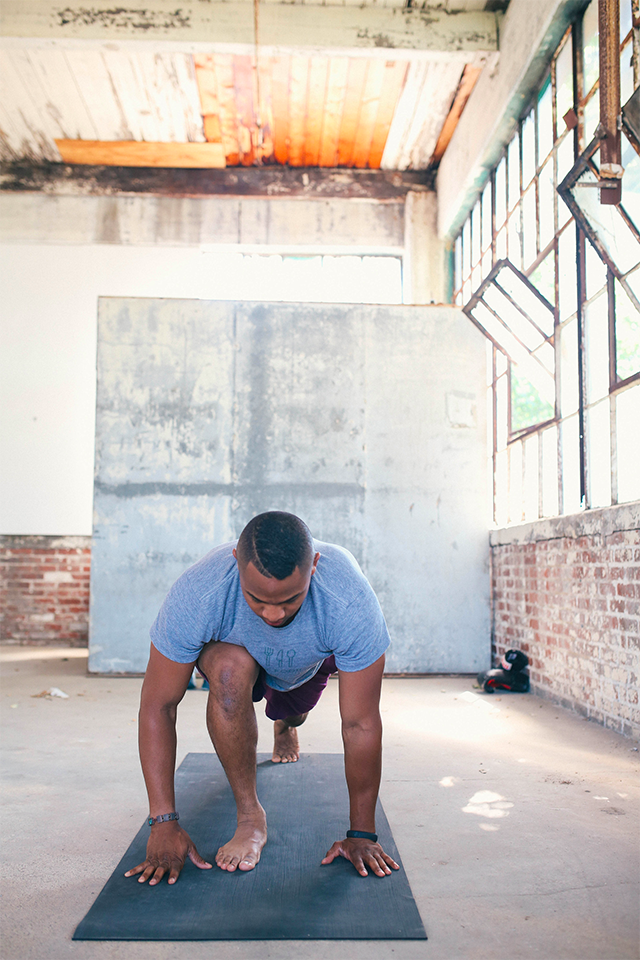
I am not athletic. My hand-eye coordination is only present when putting pencil to sketchbook. I have scoliosis and bad knees so that rules out running and other forms of high-impact activity.
But, I value my health. I want to take care of my body and make it last as long as possible. When athletic skill eludes me and my skeleton refuses to cooperate, I’m forced to find other methods of keeping myself healthy. And that doesn’t just mean drinking spinach smoothies and meditating (though those things are good, too).
It took me a really long time to find any form of physical activity I was passionate about. I picked flowers on the soccer field as a child and I played golf in high school – largely because my dad was the coach and I needed a sports credit. It was enjoyable, but not much of a workout until I had to walk all 18 holes carrying my back of clubs which only happened a couple times a year.
It wasn’t until college that I found ways to keep myself active without worsening my scoliosis or breaking my face with a basketball. So, how do you find fitness as a non-athlete?
1. Decide what stresses you out and what relaxes you.
I have a lot of friends who can run miles on the treadmill or do heavy strength training. They get a thrill from the endorphins and hard work. They like the fast-paced gym environment and are motivated by their fellow weight-lifters. That is not me.
Gyms make me anxious – too many people in too small a space. And speed? Running on the treadmill makes me worry my heart will explode. It’s irrational, but it’s not a feeling I’m good at fighting. What excites and motivates my friends only causes me stress.
I prefer a quiet environment, maybe even one where I can close my eyes. I’d rather do low-impact activities where the weight I’m lifting is my own body weight. If this doesn’t sound like much, consider your weight; 120 pounds is quite a bit to lift.
Find out what environments and activities make you anxious and avoid them. Trying to lift in a crowded gym when your anxiety levels are high isn’t going to motivate you to go back.
2. Ignore the myths.
There’s this idea floating around that slower activities don’t provide as many physical benefits. If you’ve ever done an hour of yoga, you know this is false. Yoga not only gets your heart rate up, but it also forces you to work on strength, balance, and flexibility. Strength training doesn’t even do that. In fact, many athletes are encouraged to practice yoga and similar activities; only practicing strength training can tighten your muscles. Strength isn’t nearly as impressive when you realize you can’t even touch your toes.
We non-athletes must ignore these myths. There’s a reason slower activities like yoga have been around for thousands of years. There’s a reason medical professionals encourage walking. The idea that you must must lift weights or run to be healthy and strong is a load of bull.
[Tweet “It’s not a competition – all exercise is good exercise.”]
3. Find something fun, not competitive.
I’ve always thought I wasn’t competitive enough for sports; as it turns out, I’m far too competitive. I hate playing sports because I don’t like losing and I don’t like letting people down. Even a game of Monopoly makes me irrationally angry. If this sounds like you, the best thing I can suggest is find a solo activity.
Yoga, walking, biking – these things are fun, healthy and not competitive. (Okay, so I get a little competitive in yoga. I’m not supposed to, but it happens.) I biked for an hour in the afternoon heat the other day – talk about raising your heart rate. Just Dance on the Wii isn’t a bad option either.
4. Focus on holistic activities.
I can’t stress enough how great yoga is. It relies heavily on focus and balance. There’s no way I’d be able to hold myself in a Crane pose if I wasn’t able to empty my mind and find a sense of balance. Activities like yoga focus not only on your physical health, but your mental health as well.
And that’s what a lot of people forget when working out – the mental side. Mental health plays a huge part in working out successfully, as well as learning to enjoy it. If you hate yoga, train yourself to meditate while walking. Or, if meditation makes you as anxious as gyms make me, music is a good alternative. Having a solo dance party is fun and can release the same endorphins strength training does without the stress.
Related: Getting Started With Your New Yoga Routine
5. Stop making excuses.
For a long time, I told myself (and everyone else) that I wasn’t athletic and therefore couldn’t ever participate in physical activity. “I’m a writer!” I would shout, as if that somehow excused me from taking care of my body. Now, as an obsessive yogi, I find myself teasing my friends who say, “I’m not flexible!” when I suggest they try yoga.
There’s a reason you do yoga – to get flexible! So stop saying you can’t. Stop saying you’re not skilled in this or that. It doesn’t matter! The whole point of doing yoga, of walking 5Ks, of biking an extra mile every time you go out is to get better.
[Tweet “If you want to get better at something, the only way is to do more of it.”]
I understand the plight of non-athletes – the health world is full of judgmental health nuts, myths and unreachable standards. I will never be a body builder, a professional athlete, or even a professional mall walker. And that’s okay, because I wouldn’t be happy if I was any of those things anyway.
I found my passion in yoga. What will yours be?
